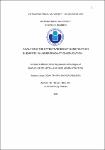| dc.description.abstract | Purpose: Gamification is the use of game aspects to non-game environments in order
to improve user experience, motivation and engagement. While gamification has been studied
in the commercial and marketing fields, it has gotten scant attention in the educational
literature. Gamification in education is a promising approach for motivating and engaging
students in their study. As a result, gamification is one of the instructional strategies that uses
game features to boost learners' motivation and engagement. The study's goal is to design and
test a model based on the Self-Determination theory (Relatedness, Autonomy, and
Competence) for analyzing the influence of gamification on learners' psychological needs
satisfaction (Social-related, Immersion-related and Achievement-related factors) as well as
motivation in learning and propose potential strategies on how to make learning/ teaching
experience better. The paper is intended for lecturers, college students, and other stakeholders
interested in Gamification for education.
Design/ Approach/ Methodology: To accomplish these objectives, data were gathered
from students in a Gamified Class at International University, where achievement-related game
elements met the needs for relatedness, autonomy, and competence; social-related game
elements satisfied the needs for relatedness, autonomy, and competence; and immersion
related game elements fulfilled the needs for relatedness, autonomy, and competence while
learning, which was necessary to examine autonomous motivation. SmartPLS Version.3 was
used to analyze the primary data received from a sample of 137 recent students who had
participated in a gamified class at IU.
Findings: the result shows autonomy psychological needs and relatedness
psychological needs have a favorable impact on student autonomous learning motivation. The
findings confirm the hypothesis that educational gamification can improve students' academic
motivation. As a result of this research, more research on the requirements and obstacles of
students learning with gamified methodologies is needed.Practical implications: The paper also has some implications for university/institute
students and professors on how to make improvement in the learning process as well as learner
motivation. | en_US |


